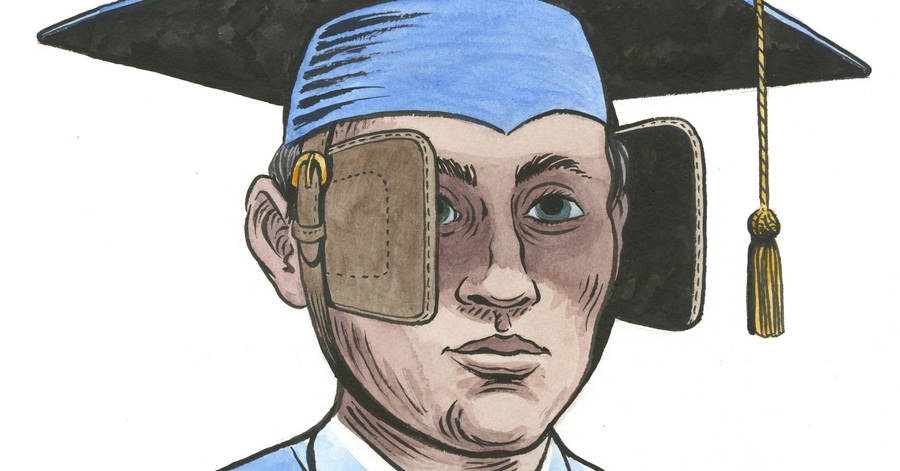By:
Most campuses have similar rules of their own. Yet across the country, these categorical prohibitions are now ignored. Academia has become politicized from top to bottom.
A typical example: California’s constitution spells out that the University of California “shall be entirely independent of all political or sectarian influence and kept free therefrom.” Yet politicization is now routine. UC Santa Barbara’s History Department offers a minor in “poverty, inequality, and social justice”—that is, radical-left politics. UC Berkeley’s School of Social Welfare says it’s committed to “developing leaders for social justice.” Professors indoctrinate students, seemingly unconcerned with the vast gulf between what their rules forbid them to do and what they are openly doing.
Bitter experience has now shown us that those rules were there for good reason. Educators used to understand that politics would destroy academia’s public credibility and internal ability to function. Political ends would stifle free inquiry, tribalism would erode analytical thought, and emotion would replace reason. Those forebodings match exactly the distortions of higher education we are now seeing—and their results.
Universities used to be places where the major political and social issues of the day could be researched and debated. The results of this careful thought and analysis were used to make political debates in the wider world more realistic and better informed. All that has now been turned on its head. The campus offers not a reasoned corrective to partisan passions, but fierce, one-sided advocacy of dangerous and destructive ideas.
Real education is accordingly neglected. In their 2011 book, “Academically Adrift: Limited Learning on College Campuses,” Richard Arum and Josipa Roksa found “an astounding proportion of students”—at least 45% of the 2,300 undergraduates surveyed at 24 universities—“are progressing through higher education today without measurable gains in general skills” like critical thinking, complex reasoning and writing.
How can it be that scholars once so aware that political advocacy would corrupt and discredit their profession allowed ruin to set in? Campus radicals, once a very small minority, had some astonishing luck. As the baby boomers reached college age in 1965-75, public higher education needed to more than double its enrollment. Suddenly the number of professors had to increase drastically too—and they were recruited as the Vietnam War roiled campuses.
Political radicalism was rampant among the graduate students who became junior professors, instantly shifting the faculty sharply leftward. Then political pressure for female and minority faculty appointments led more young radicals to join the faculty. A 1969 Carnegie Commission on Higher Education study found that Democrats then outnumbered Republicans among the faculty by about 3 to 2. A 2018 study found that among professors at civilian liberal arts colleges, the same ratio is now nearly 13 to 1—and it stands to rise as younger professors skew further leftward. Without the clash of contrasting views, nothing slows the slide from academic rigor to folly and fantasy.
Through taxes, tuition and philanthropy, Americans devote enormous sums of money to a bait-and-switch scam: Spending that is supposed to support higher education goes to political advocacy. What can be done about it? Some have suggested new codes of conduct for faculty, but it’s doubtful that mere promises of better behavior can depoliticize the professoriate, which is now, especially in the humanities and social sciences, a solid phalanx of closed-minded political activists—not merely unscholarly, but antischolarly.
Taxpayers, lawmakers and donors need to wake from the spell cast by American universities’ past glory. Only then can they summon the courage to withdraw funding and force the necessary change: replacing faux-academic political activists with real academic thinkers—people who care about original thought, not peddling an ideology.
What’s happening in the streets should be a wake-up call. As Andrew Sullivan has written, “we all live on campus now.” If you don’t like it, the answer is to reform academia. Otherwise, radical ideas will gain more ground.
John M. Ellis is a professor emeritus of German literature at the University of California, Santa Cruz, and author of “The Breakdown of Higher Education: How It Happened, the Damage It Does, and What Can Be Done.”
To see this article and subscribe to others from the Wall Street Journal, click read more.
![]()
 Listen Online
Listen Online Watch Online
Watch Online Find a Station in Your Area
Find a Station in Your Area







 Listen Now
Listen Now Watch Online
Watch Online
